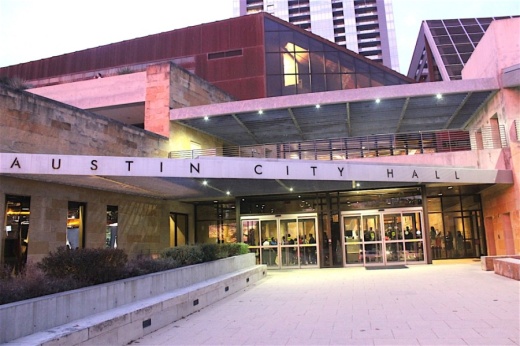However, the candidates from the city’s wealthiest City Council district offered widely differing answers on how to handle address the situation, which most of them said has gotten out of control.
The District 10 race offers the busiest field of candidates. Incumbent Alison Alter faces six opponents on the ballot: author Ben Easton; food service professional Belinda Greene; attorney Pooja Sethi; attorney and businessman Robert Thomas; real estate broker Jennifer Virden; and Noel Tristan, who Community Impact Newspaper has not been able to reach. Tristan did not participate in the League of Women Voters panel.
The count of people experiencing homelessness in Austin has risen steadily over the last few years. In January 2020, the count of unsheltered homeless individuals rose by 45% over the previous year's count, which some have attributed to the fact that the organizations heading the count had more volunteers this year and were thus able to count more people. Others have said that the City Council decision to lift a criminal ban on public camping in June 2019 resulted in a significant increase in the visibility of what officials have called the city’s homelessness crisis.
Alter emphasized that she voted against decriminalizing public camping because she did not think the city had a follow-up plan. She maintained that she was right. If elected, she said, she would work to continue reinforcing the city’s permanent supportive housing supply—a tool that offers homeless individuals housing and services—and to continue championing a “work first” program that offers job training and services to those experiencing homelessness.
“I believe we need to compassionately help our homeless neighbors transition into housing and manage our public spaces,” Alter said.
Easton, 61, called homelessness the “primary issue of our age” and the main reason he decided to run.
“It sounds like many of you want to put lipstick on the pig, but guess what? It is ugly. It is outrageous that these people are living where they are and hanging out where they are,” Easton said. “Yes, they are destitute. They are homeless. ... But guess what? That’s not my problem or yours, in the sense that it’s our responsibility to live with the ugliness that they are creating.”
Easton said that within a week or two of his being sworn in, he would “remove all of them” to a public-owned property “miles away from the city center [where] they can be dealt with ... safely, humanely, quietly, privately.”
Greene, 42, said it’s clear the city was not handling the homelessness issue well, nor is it spending money effectively to address the problem.
“The question is not about sanitation and cleaning up the area; it’s about the safety of these individuals,” Greene said. “I would first reinstate the camping ban, then identify our most vulnerable—the women, the minors, the veterans—get them in a temporary home, on their feet, with medical help and mental help where needed.”
Greene said getting the homeless individuals in a temporary home would “get them the pride and dignity to live out on their own.”
Sethi, 41, said she would not reinstate the camping ban, citing a court decision that a city could not criminalize camping if it did not have enough shelter beds to meet the needs of its homeless population. She said the city ought to aggressively pursue solutions, including deeper data collection to understand the full scope of the issue.
“We need more resources into the rapid rehousing plan, we need to partner with local organizations...and provide mental health resources and we need to work on more affordable housing,” Sethi said. In order to address camp cleanups, Sethi said, the city needs to partner with community groups that would work with the homeless on their camp sites.
Thomas, 53, criticized Alter for helping fuel the homelessness issue, which called a “health crisis to rival the pandemic.” Thomas said the camping ban needed to be “immediately” reinstated and that the city needs to work with community partners who have proven solutions, such as Mobile Loaves and Fishes.
“It is not inconsistent with compassion for our homeless community to ensure that the totality of our community is safe [and] secure and that this health care crisis is abated,” Thomas said. “There’s more we can do. You can’t make knee-jerk actions.”
Virden, 53, also said her first order of business in addressing homelessness would be to reinstate the camping ban. She said the city needed to get the homeless population “re-centralized” so local nonprofit organizations could locate and send them to existing facilities. Virden endorsed use of the 5-acre sanctioned homeless encampment Texas Gov. Greg Abbott set up in southeast Austin in November 2019.
“Unfortunately, a lot of our homeless population—they don’t want to abide by the very strict rules in some of these shelters that we provide, so we do have the 5-acre campsite over by [the airport],” Virden said. She called the campsite, which sits on an abandoned storage site far from the center of the city, “perfectly safe.”
“I just think that what we’re doing now is unacceptable, and it’s not way for us to be living in the city of Austin,” Virden said.
Election Day is Tuesday, Nov. 3. Early voting begins Tuesday, Oct. 13, and runs through Oct. 30.





